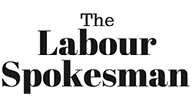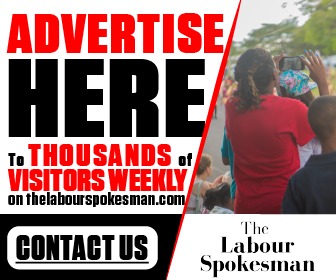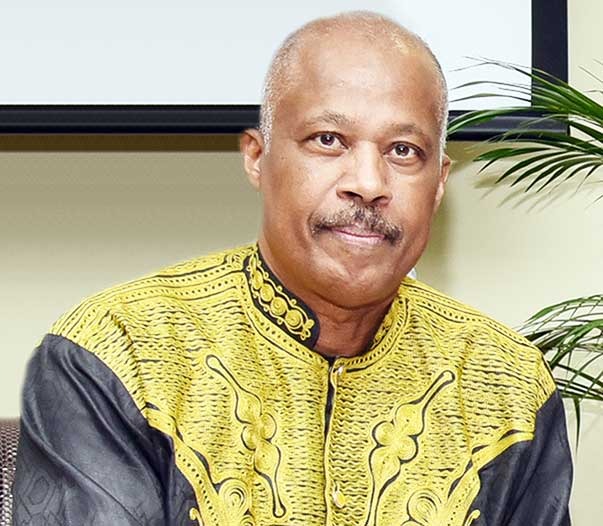BASSETERRE, St.Kitts (Tuesday 30th March 2021)- University of the West Indies Vice Chancellor, Sir Hilary Beckles reported to the region on Monday 29th March 2021 on the affairs of the Caribbean’s premier tertiary learning institution in his State of Our University Address.
The approximately one hour and ten minutes talk outlined the transformational changes that have taking place in the UWI causing it to be “re-engineered, re-energised, refocused and rebuilt.”
In a presentation streamed on UWI TV Global and social media, Beckles spoke of the UWI as a first-class, excellent, globally competitive Caribbean institution that has focused on building an effective framework for regenerating Caribbean development; confronting the school’s downward financial performance; bringing the OECS islands into the centre of the school’s strategic focus and making UWI stakeholders proud.
As a result of work done in these areas, “the UWI of ten years ago is no longer,” the Vice Chancellor said.
Acknowledgement was made of four pillars which continue to support the UWI. These sources of support, he said, were the ongoing partnerships that exists between the regional governments and academic community, the caring and committed leadership present across the campuses, the ability of the school to energise past and present students around nation building, and the valuable work of an intellectually critical academic community.
Vice Chancellor Beckles outlined that there was need to renew the profile of the university. In an act of “reputation revolution”, the university undertook the two-step approach of raising the status of the UWI abroad, then convert that new profile into revenue.
Sir Hilary highlighted the present rankings of the UWI. He said that the school ranks as the number one tertiary institution in the wider Caribbean, ranks in the top 1% of schools in Latin America and the Caribbean and ranks in the top 4% of school, globally.
At the same time, the report projects a future of growth for the UWI as a rising star in global education. The growth of the school will be based on present and future international strategic alliances the school has formed.
Beckles said, “the University of the West Indies was never meant to be small and smallminded, parochial and inward-looking.”
He outlined how the UWI has pursued its vision of a global presence though alliances with the government of China and the establishment of the UWI Centre for Software Engineering in Suzhou, China; cooperation with the State University of New York for joint diploma and master’s degree programmes in Leadership for Sustainable Development; the establishment of the UWI – University of Johannesburg Centre for African Affairs to be connected to the transformation and growth taking place on the continent; the creation of the UWI-Coventry Institute for Industry Academic Partnership in partnership with the University of Coventry; the UWI-University of Havana Centre for the Sustainable Development of Caribbean Peoples for the pursuit of joint research in biotechnology, public health, and pharmaceutical studies; and the establishment of a University of the West Indies Building on the campus of the University of Lagos (Nigeria) to deliver joint programmes in African history and diaspora culture.
Beckles outlined that in early April, the UWI will, in partnership with University of Glasgow, open an additional resource centre, in Barbados, for research that will “invest in reparatory justice, public health, economic thinking, social reform, anti-poverty strategies.”
The report shifted its focus to addressing changes in the UWI’s pursuit for a new financial model. Beckles outlined that the UWI’s financial strategy of the past was “to deliver outputs that the budgets would not allow”. Deficit spending, he said, allowed to university to expand its reach at a time when region needed additional investments in higher learning.
Deficit spending brought benefits as the university was able to double its enrolment from 25,000 students to 50,000. This has brought Caribbean tertiary enrolment closer to that of countries in the western hemisphere. The Vice Chancellor pointed out that growth in enrolment and capacity building is needed to rise above the sluggish growth the region continues to experience.
However, deficit spending would end as the university has moved to a position of balanced budgeting. The university has embraced an expert panel of financing and public sector experts, headed by Barbadian Prime Minister, Mia Mottley to advise on eliminating significant member government arears which have escalated to untenable levels, debt impairment and unfunded pension liability faced by the school.
Beckles outlined key areas of the school’s revenue generating 10-point plan. Measures include cutting expenditure across the board by 10%; revenue growth of 10%; a northern strategy of serving West Indians in North America institutions like State University of New York; a southern strategy which includes partnerships in Suriname, Guyana, and Latin America; and a global strategy of transitioning the UWI Open Campus into a Global Campus.
The Vice Chancellor spoke to a vision of moving from 8,000 virtual learning students to more than 80,000 just by taking the UWI learning experience to the world.
The report also addressed the concerns that the UWI has not served the OECS member states as well as it needed to. Beckles highlighted how the UWI has brought closure to its underperformance in the OECS through the establishment of the Five Islands Campus on Antigua. He outlined how this and all other campuses help to better make the people of the sub-region better academically exposed and empowered.
Beckles ended by outlining that the university is guarding against slippage in the strides made over the last decade. He spoke of performance matrices that have been developed to a culture of accountability in a more open UWI which offers change and transformation that stakeholders can scrutinise and be proud of.
He invited dialogue from stakeholders as “discussion and discourse are needed to ensure that the university does not move from awesome to awful.”




